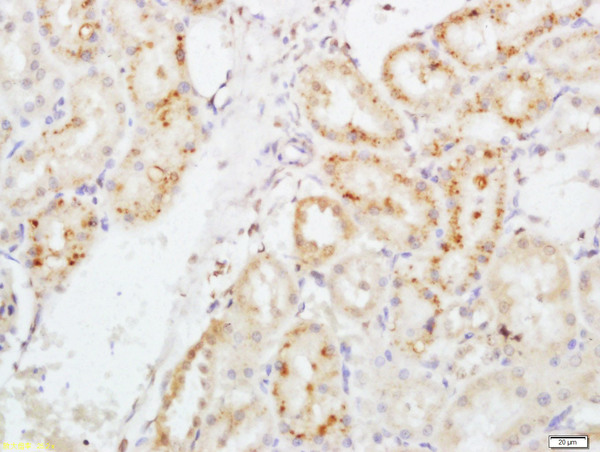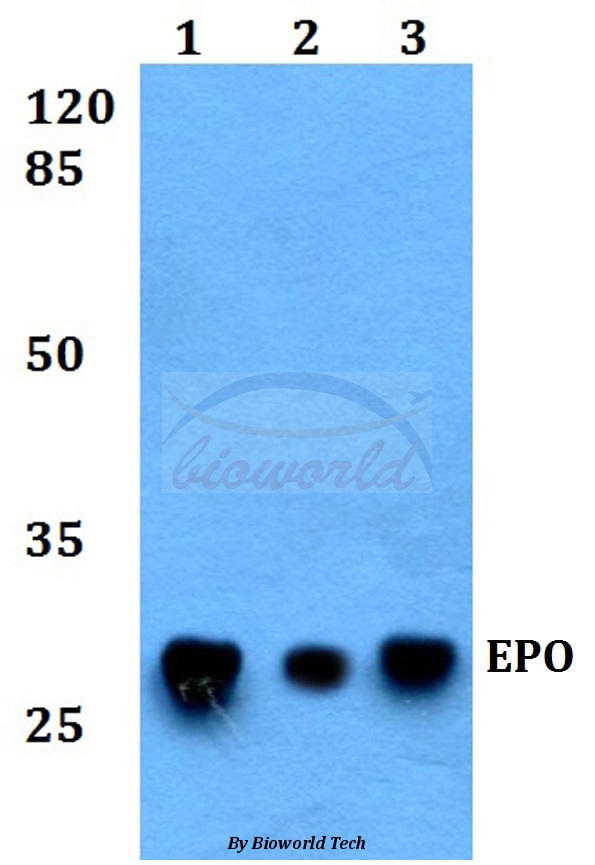
Western blot analysis detecting EPO antigen (100 ng/well) using mouse anti-human EPO antibody (clone 85) at 1:1000 dilution (1 ug/mL)
EPO antibody [85]
GTX19485
ApplicationsWestern Blot, ELISA
Product group Antibodies
ReactivityHuman
TargetEPO
Overview
- SupplierGeneTex
- Product NameEPO antibody [85]
- Delivery Days Customer9
- Application Supplier NoteELISA: Use at an assay dependent dilution. Optimal dilutions/concentrations should be determined by the end user.
- ApplicationsWestern Blot, ELISA
- CertificationResearch Use Only
- ClonalityMonoclonal
- Clone ID85
- Concentration1 mg/ml
- ConjugateUnconjugated
- Gene ID2056
- Target nameEPO
- Target descriptionerythropoietin
- Target synonymsDBAL, ECYT5, EP, MVCD2, erythropoietin, epoetin
- HostMouse
- IsotypeIgG1
- Protein IDP01588
- Protein NameErythropoietin
- Scientific DescriptionThis gene encodes a secreted, glycosylated cytokine composed of four alpha helical bundles. The encoded protein is mainly synthesized in the kidney, secreted into the blood plasma, and binds to the erythropoietin receptor to promote red blood cell production, or erythropoiesis, in the bone marrow. Expression of this gene is upregulated under hypoxic conditions, in turn leading to increased erythropoiesis and enhanced oxygen-carrying capacity of the blood. Expression of this gene has also been observed in brain and in the eye, and elevated expression levels have been observed in diabetic retinopathy and ocular hypertension. Recombinant forms of the encoded protein exhibit neuroprotective activity against a variety of potential brain injuries, as well as antiapoptotic functions in several tissue types, and have been used in the treatment of anemia and to enhance the efficacy of cancer therapies. [provided by RefSeq, Aug 2017]
- ReactivityHuman
- Storage Instruction-20°C or -80°C,2°C to 8°C
- UNSPSC12352203




![ICC/IF analysis of GC7901 cells using GTX82784 EPO antibody [4F11]. Green : EPO Blue: DRAQ5 fluorescent DNA dye Red: Actin filaments](https://www.genetex.com/upload/website/prouct_img/normal/GTX82784/GTX82784_20170912_ICCIF_w_23061322_811.webp)